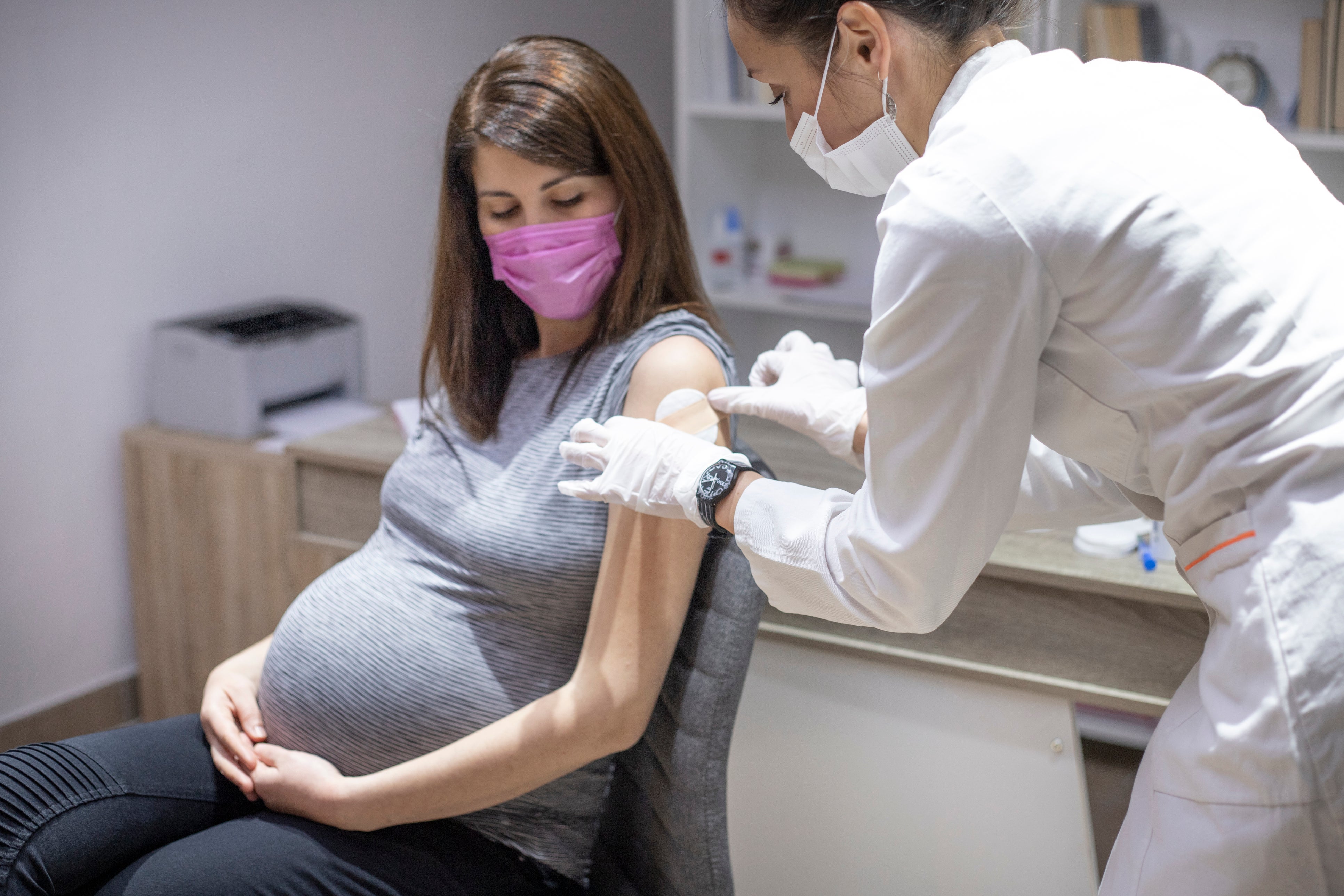Pregnant people targeted with false vaccine claims on social media
The NHS ‘strongly recommends’ the Covid vaccine if you’re pregnant or breastfeeding

Inaccurate vaccine claims on social media about the safety of Covid vaccines for pregnant people have been discredited by UK health agencies.
False messages shared by thousands alleged that people who are pregnant or breastfeeding were advised against taking the vaccine.
However, NHS guidance clearly states that it is safe to have the vaccine during any stage of pregnancy and that getting vaccinated actually “reduces the risk of having a stillbirth”.
The misleading claim was taken from an outdated document from 2020 shared by a Twitter user who incorrectly claimed that the UK government had “quietly remove[d] approval for use of Covid vax in pregnant and breastfeeding women”.
The original poster, whose account has since been suspended, shared a report from 2020 which said that “women who are breastfeeding should not be vaccinated” and that “reassurance of safe use of the vaccine in pregnant women cannot be provided at the present time” due to an absence of data.
Current data clearly states that there is no link between problems in pregnancy or birth and the vaccine, however, with health agencies reinforcing this position.
An MHRA spokesperson told The Independent: “Current evidence shows that the Covid-19 vaccines are safe to use during pregnancy and breastfeeding.
“The text referred to in the social media posts comes from the Public Assessment Report (PAR) which summarises our assessment at the time of approval of the vaccine (2 December 2020).
“Since then significant new data has been generated (both non-clinical and post-authorisation “real world” data) which led to the updated advice that vaccines should be offered in those who are pregnant and breastfeeding.”
It adds: “For our latest advice, please see the Summary of Product Characteristics and our Yellow Card Covid-19 vaccine reporting which states that the vaccines are safe to use during pregnancy and breastfeeding.”
A statement from the Department of Health and Social Care said: “Covid vaccines are safe and highly effective both for pregnant women and for those who are breastfeeding.
“This is backed by extensive real-world data, including global analysis outside of clinical trials and in healthcare settings.”
NHS guidance states that “it’s safe to have the vaccine during any stage of pregnancy, from the first few weeks up to your expected due date”, adding that you do not need to delay vaccination until after you have given birth.
It states that Covid-19 vaccines cannot give pregnant people or their baby the Covid virus.
“Getting vaccinated against Covid-19 reduces the risk of having a stillbirth,” it reads.
“There's no evidence Covid-19 vaccination increases the risk of having a miscarriage, pre-term birth or other complications in your pregnancy.”
Join our commenting forum
Join thought-provoking conversations, follow other Independent readers and see their replies
Comments
Bookmark popover
Removed from bookmarks